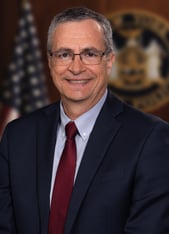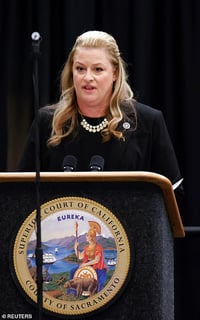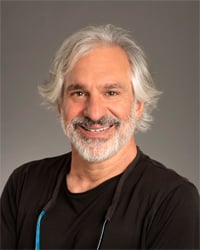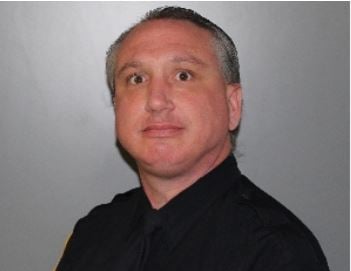Take your FIGG knowledge to the next level with this six-part series. The series is now complete. You can view the entire series on-demand once you fill out the registration form below.
This has been a banner year for forensic investigative genetic genealogy (FIGG). It seems that every week, investigators are using FIGG to close cases that appeared otherwise impossible to resolve. As the FIGG technology developer and the steward of GEDmatch and GEDmatch PRO, Verogen is dedicated to bringing quality training to law enforcement professionals who wish to solidify their knowledge in FIGG. This six-part webinar series is designed for law enforcement professionals who already have the foundational understanding of how FIGG works and it will take your knowledge to the next level.
In this six-part series attendees will learn:
- How to choose and evaluate which lab to work with, including both public and private options
- How to make sure your case remains prosecutable and advice from attorneys experienced with FIGG
- How to navigate the public’s concern with privacy issues
- The future of FIGG according to leading FIGG experts
- The application of FIGG in long-term missing or unidentified persons and unresolved murder investigations
- How to build a successful FIGG unit, minimize the risks and maximize the success in using FIGG to investigate crimes












Episode 1: How to Choose a Lab Partner - Public and Private Options
- The FIGG process starts with your local crime lab
- Finding a partner in the crime lab
- The business case for utilizing FIGG
- How a private lab can be a great resource
- Why you should choose an accredited lab
presented by Dr. Ray Wickenheiser, Lab Director, New York State Police Crime Lab System & Rachel Oefelein, Chief Scientific Officer, DNA Labs International
Episode 2: Legal Considerations following an STR Match - a Panel Interview
- FIGG: what it is, and what it is not
- What happens after a suspect is identified
- How to approach affidavits and warrants
- How to approach discovery and trial issues
- Recommended practices nationwide and how to protect the technique
presented by Stephen Kramer, Co-founder and President of Indago Solutions, Amy Holliday. Assistant Chief Deputy DA, Sacramento DA's Office, Michele Hanisee, Deputy DA, Los Angeles County DA's Office
Episode 3: Public perceptions and privacy concerns
- Research results on the way the public sees FIGG usage
- The common misconception about law enforcement’s utility and access of FIGG
- DNA 101 – technology, access, and how to explain them to others in your investigation.
- The databases – what kind of access does LE have vs. not
- The Idaho Innocence Project and success with FIGG
presented by Dr. Amy Lynn McGuire, Professor of Biomedical Ethics and Professor of the Center of Medical Ethics and Health Policy, Baylor College of Medicine and Dr. Greg Hampikian, Professor of Biology and Criminal Justice, Boise State University, Director of the Forensic Justice Project and the Co-director of the Idagho Innocence Project at BSU
Episode 4: Cautionary Tale and the Future of FIGG
- How to engage the public and explain FIGG in an investigation
- Everything you need to know about reference testing
- Technology development that will propel FIGG to the next level
presented by Stephen Busch, CEO of Indago Solutions and Stephen Kramer, Co-founder and President of Indago Solutions
Episode 5: When to Pull the Trigger & Apply FIGG On Cold/Unresolved Case Investigations
- Case criteria for applying FIGG
- Subfields of death investigations relevant for FIGG application
- Unique challenges for FIGG in cold/unresolved cases and how to overcome them
- FIGG is a multidisciplinary practice and you’re in the driver seat
presented by Jason Moran, president of JEMM Consulting
Episode 6: Critical Components of Successful FIGG Units
Team overview, FIGG case reviews, and success factors shared by
- San Diego Sheriff’s Office
- Green Bay Police Department & FBI's Cold Case Task Force
| Speaker | Biography |
|
Ray Wickenheiser Director for the New York State Police Crime Lab System |
Dr. Ray Wickenheiser is currently the Director for the New York State Police Crime Lab System, headquartered in Albany, New York. He is also a Past President of the American Society of Crime Laboratory Directors (ASCLD) and the 2022 Briggs J. White Award recipient . Ray has over 38 years of forensic science experience, with 21 of those as a Crime Lab Director in local and State Crime Laboratories. His areas of expertise include crime lab administration, quality management, conflict resolution, forensic DNA, serology, hair and fiber trace evidence, physical matching and comparison, glass fracture analysis, forensic grain comparison and genetic genealogy. Ray is currently the Chair of the Forensic Science Standards Board (FSSB) for the Organization of Scientific Area Committees (OSAC) for Forensic Science. In New York, Ray is a member of the New York Crime Lab Advisory Committee (NYCLAC). Ray is a fellow in the American Academy of Forensic Science (AAFS), and has been an invited guest to the Scientific Working Group on DNA Analysis Methods (SWGDAM) since 2013. He was a member of the Department of Justice: National Institute of Justice Sexual Assault Forensic Evidence Reporting (SAFER) Working Group publishing the “National Best Practices for Sexual Assault Kit: A Multidisciplinary Approach”. Ray is a qualified ISO Auditor, conducting audits in 10 states as an auditor and DNA lead auditor. He has testified as an expert witness over 90 times, published numerous scientific articles, a book chapter, and is a frequent presenter at workshops and conferences. Ray has served as a peer-reviewer for a number of journals and advisor to several university forensic programs. Ray has also served as an adjunct professor, teaching criminalistics at Montgomery College, Maryland. Ray holds a Bachelor of Science Honours degree from the University of Regina, Canada, a Master of Business Administration degree from the University of Louisiana at Lafayette, Louisiana, a Doctorate of Professional Studies in Bioethics, Health Ethics and Policy from Albany Medical College, and a certificate in Genetic Genealogy from Boston University. Ray’s interests include Investigative Genealogy, touch DNA, conflict resolution and playing ice hockey. |
|
Rachel Oefelein Chief Scientific Officer, DNA Labs International |
Rachel Oefelein is currently the Director of Research and Innovation and a Senior DNA Analyst at DNA Labs International (DLI). Additionally, Rachel is a PhD candidate with Griffith University located in Brisbane, Australia. She received her MSc in Forensic Science from the University of Strathclyde, and her BS in Criminal Justice, with a Forensic Science Minor, from Loyola University of New Orleans. Rachel worked at the Armed Forces DNA Identification Laboratory (AFDIL) for nearly five years and previously interned at the Instytut Ekspertyz Sądowych, the Forensic Laboratory in Krakow, Poland. Since joining DNA Labs International in 2014, Rachel has testified in thirteen Florida counties, six states and U.S. Territories, and five countries as an expert witness for both the prosecution and the defense in misdemeanor and felony trials, as well as Williams, Daubert, and Arthur hearings. |
|
Amy M. Holliday Assistant Chief Deputy Sacramento County District Attorney's Office |
Amy Holliday joined the Sacramento County District Att5orney’s Office in 2002 following four years in civil practice. She has completed assignments in Misdemeanors, Juvenile, Domestic Violence, General Felonies, Career Criminal Prosecution, Adult Sexual Assault Prosecution, and Homicides. Notable cases Amy has prosecuted include the case against former police officer Gary Baker, who preyed upon an elderly victim suffering from speech aphasia and sexually assaulted her on three occasions. When the East Area Rapist/Golden State Killer was arrested in 2018, Amy moved back to Homicides as one half of the team that prosecuted Joseph James DeAngelo for the crimes he committed in Sacramento and five other counties in the 1970’s and 1980’s. Amy also prosecuted another case solved by forensic genetic genealogy, a 27 year-old series of sexual assaults committed by former federal prison employee Mark Manteuffel. In 2014, Amy received the Outstanding Victim Service Award and in 2015, Amy was awarded the Brian L. Hintz Prosecutor of the Year Award. Amy now serves as an Assistant Chief Deputy and oversees the Central Operations Bureau and Cold Case DNA Prosecution Team. Outside of the office, Amy is an attorney coach for the St. Francis High School mock trial team and teaches Trial Advocacy at Lincoln Law School. Amy has a passion for working with victims of crime, especially those who are particularly vulnerable. |
|
Michele Hanisee Deputy District Attorney, |
Michele Hanisee has been a Deputy District Attorney for the County of Los Angeles for 23 years. She has tried over 100 jury trials including 45 murders. She spent five years in the Hardcore Gang Division and the past ten years in the Major Crimes Division. She is author of the “California Gang Crimes Manual.” She co-authored Proposition 66, the Death Penalty Reform and Savings Act of 2016, which was enacted by the voters. She is currently the President of the Association of Deputy District Attorneys, which represents over 800 Los Angeles Deputy District Attorneys. She is also a lifelong genealogist. |
 Amy McGuire, J.D., Ph.D. Leon Jaworski Professor of Biomedical Ethics Director of the Center for Medical Ethics and Health Policy at Baylor College of Medicine |
Amy McGuire, J.D., Ph.D., is the Leon Jaworski Professor of Biomedical Ethics and Director of the Center for Medical Ethics and Health Policy at Baylor College of Medicine. She researches ethical and policy issues related to emerging technologies and innovative therapeutics, with a particular focus on genetics and genomics, big data, neuropsychology, and the clinical integration of novel neurological devices. Her research is funded by the National Institutes of Health. Dr. McGuire has received numerous teaching awards at Baylor College of Medicine, was recognized by the Texas Executive Women as a Woman on the Move in 2016, and has been invited to give two TED talks: a TEDMed talk titled “There is no Genome for the Human Spirit” in 2014 and a TEDx talk titled “Can Creating Moments of Meaning Improve Mental Health?” in 2022. She has served as a member of the National Advisory Council for Human Genome Research and as an advisor to the X Prize in Genomics. Currently, Dr. McGuire is on the board of the Greenwall Foundation, is a Hasting’s Center Fellow, and is a member of the Scientific Advisory Board for Geisinger Research and The Morgridge Institute for Research. |
|
Greg Hampikian, Ph.D. |
Dr. Greg Hampikian is professor of Biology and Criminal Justice at Boise State University (BSU), Director of the Forensic Justice Project and Co-Director of the Idaho Innocence Project (IIP) at BSU. His New York Times Opeds, include "The Dangers of DNA Testing", "When May I Shoot a Student?", and “Men Who Needs Them?" His casework has been featured in Science, on the BBC, CNN and Dateline. His book Exit to Freedom with exoneree Calvin Johnson Jr., chronicles Mr. Jonson’s 17-year fight to prove his innocence using DNA. He was awarded a Ph.D. in Genetics from the Univ. of Connecticut, and has held positions at the Yale Univ. Medical School, the Worcester Foundation, Emory Univ., Clayton State Univ., La Trobe Univ. (Melbourne, Australia), and the CDC (Atlanta, GA). Hampikian has helped establish innocence organizations in Armenia, France, and Ireland, and served as a DNA expert in more than 3 dozen exonerations including Amanda Knox (Italy), Freddie Lawrence and Paul Jenkins (2018, with Montana Innocence Project), Kerry Robinson (with the Georgia Innocence Project), and Christopher Tapp and Charles Fain in Idaho (declared innocent in 2021). In both of the Idaho cases, his lab worked with police to identify new DNA genealogy matches that led to arrests, decades after the crimes. |
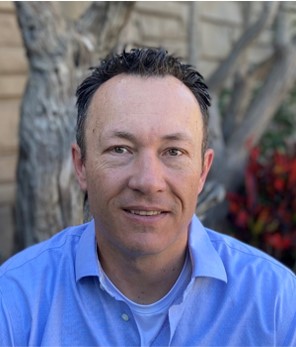 Stephen Busch Former FBI Agent CEO, Indago Solutions |
Steve Busch spent 19 years as a FBI Special Agent. He was a co-founder of the FBI’s Forensic Genetic Genealogy (FGG) team, and architect of the FBI’s National FGG (Now “IG”) program. Previously Mr. Busch worked investigative assignments including counter terrorism and complex financial crimes. He also honed his leadership skills as a SWAT Sniper Team Leader, routinely solving multifaceted problems in a high threat environment. Mr. Busch departed the FBI early to found Indago Solutions with his former FBI partner Steve Kramer. Former Civil Engineer, he has a B.S. in Engineering from Cornell University and was a captain on Cornell's football team. |
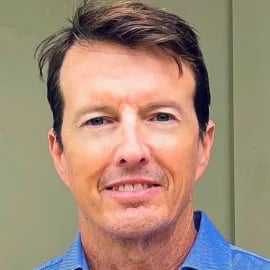 Stephen Kramer Former FBI Legal Counsel, Co-founder and president, Indago Solutions |
Steve Kramer has 25 years of experience in law enforcement, as an FBI attorney, as a federal prosecutor and as a deputy district attorney. He began his career with law enforcement in law school in 1993 after he published a law review article on the use of DNA evidence and was contacted and consulted by the FBI and other law enforcement agencies. He has prosecuted homicide cases, corporate fraud cases and national security cases. At the FBI he was responsible for legal matters in many of the FBI's largest and most sensitive criminal and national security investigations. Due to his interest in DNA related investigations, in 2013, Mr. Kramer became involved in the FBI's investigation of the Golden State Killer, who was one of the most prolific, uncaught serial killers in U.S. history responsible for 13 murders, 50 sexual assaults and hundreds of burglaries. In 2018, Mr. Kramer worked with Family Tree DNA, a commercial genetic genealogy company, to upload the Golden State Killer's DNA into its database. Mr. Kramer led a team of investigators on a forensic genetic genealogy investigation which resulted in the arrest of Joseph James Deangelo in April 2018 as the alleged Golden State Killer. Following the arrest of Deangelo, Mr. Kramer and Special Agent Stephen Busch created and led the FBI’s Forensic Genetic Genealogy team, which solved dozens of the most difficult and violent crimes both in the United States and internationally. In 2021, Mr. Kramer and Mr. Busch left the FBI and founded Indago Solutions, LLC, an AI-based software service that automates genetic genealogy to identify suspects. Mr. Kramer continues to work regularly with the United States Department of Justice and with state prosecutors on policy issues and best practices for law enforcement’s use of genetic genealogy. |
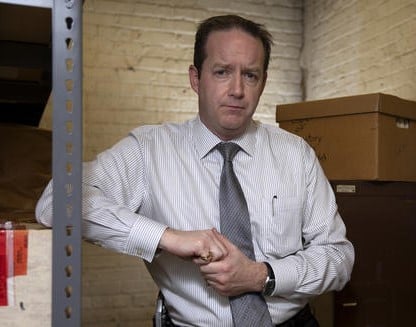 Jason Moran President of JEMM Consulting |
JEMM Consulting, LLC is a limited liability company organized in 2017 to provide consulting and training services to individuals, businesses/associations, educational institutions, and government agencies on certain law enforcement subfields. Some of these subfields are missing/unidentified persons, death investigations, human identification, cold or unresolved cases, and death care industry incidents. Jason P. Moran is the President of JEMM Consulting, LLC. Jason is also a member of the Cook County Sheriff’s Office where he has served for twenty-four (24) years. He currently holds the rank of Commander of Police. In that role, Jason leads the Forensic Services Initiative which is responsible for the investigation of human identification cases, complex deaths, cold missing person and homicide cases, and death care industry incidents. He has made local and national headlines for leading major investigations and closing several high-profile cold cases. Among these are the Chicago Burr Oak Cemetery Case, the probe into the Cook County Medical Examiner’s Office, and the identification of three (3) of the victims of the serial killer John Wayne Gacy. Jason has appeared in several news programs and has been featured in several documentaries. Recently, he has filmed two (2) separate, multiple part series on the Discovery ID channel called “Deadly Legacy” and “The Clown and the Candyman”. He also appeared in “Conversations with a Killer: The John Wayne Gacy Tapes” which aired on Netflix in 2022. Jason has completed in depth research and field work regarding the burial of Cook County’s Indigent, Unclaimed, and Unidentified. He has served the Cook County Medical Examiner’s Office as the Vice-Chairman of their Advisory Board and has assisted that office with several items like the proper handling of Unidentified Deceased Person cases. As a result of his investigations, Jason has worked with county and state officials in drafting legislation regarding public burials and certain forensic methods. He has formed a Forensic Archaeology Team and has conducted dozens of grave exhumations and inspections to include clandestine grave excavations. Jason is an instructor and lecturer. He teaches Illinois’ Lead Homicide Investigator course and a Missing/Unidentified Person courseJason has published several articles and presented several webinars for the National Police Foundation on various cold case topics. Recently, he was published in the 2021 issue of the Department of Justice Journal of Federal Law and Practice (DOJ Journal, formerly USA Bulletin) on Missing or Murdered Indigenous Persons – "Living in a Cruel Limbo", A Guide to Investigating Cold Missing Person Cases. |
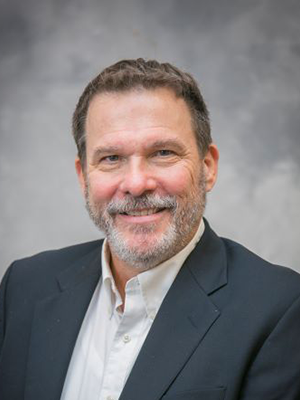
Jeffrey S. Vandersip sr. Crime & Intelligence Analyst Homicide Unit - Cold Case, San Diego County Sheriff's Department |
Jeffrey S. Vandersip is a graduate of San Diego State University and a 22 year veteran in Criminal Justice, including the last 17 with the San Diego County Sheriff's Department. Currently a Senior Crime and Intelligence Analyst assigned to the Homicide's Cold Case Unit, Jeffrey has, since 2019, contributed to the solving of seven Homicide and Doe cases using Investigative Genetic Genealogy. In 2021 Jeffrey was the recipient of the California Crime and Intelligence Association's Analyst of the Year award for his work in furthering IGG within Law Enforcement. Jeffrey began his SDSD career in America's most southwesterly city Imperial Beach and has also done stints in Encinitas, Criminal Intelligence and Headquarters. A geographer by training, Jeffrey is grateful to have found a career that combines his love of "where" with his love of "why. In addition to his family Jeffrey is also a big fan of baseball, blues, and bourbon in just about that order. |
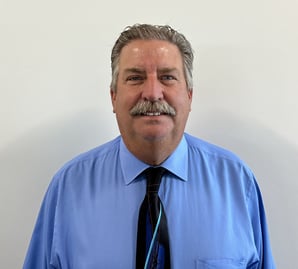
Brian Patterson Deputy Sheriff (Ret.) Homicide Unit - Cold Case, San Diego County Sheriff's Department |
Brian Patterson is a Deputy Sheriff (ret.) from the San Diego Sheriff's Office. He spent 27 years in law enforcement with 11 years in homicide and the last 3 working on cold cases. He had been the lead investigator in about 40 murder investigations and about 100 death investigations and OIS’s. He has used FIGG to solve 4 cases so far and is currently investigating more cases as part-time Deputy Sheriff through the SDSO Cold Case Unit.
|
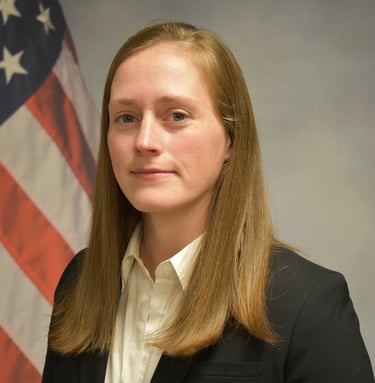
Sarah Deamron Special Agent, FBI WI Cold Case Task Force |
Mrs. Deamron has been a Special Agent with the Federal Bureau of Investigation for seven years. Her current assignment is in the Green Bay resident agency of the Milwaukee Division. Since joining the FBI in 2015, SA Deamron has worked a multitude of violent crimes to include assaults, homicides, sexual assaults, child abuse, and high-profile cold cases. In 2018, SA Deamron began her education of Investigative Genealogy while working as the FBI co-case Agent for the Jayme Closs Kidnapping. Since that time SA Deamron has worked closely with a team of select investigators who have solved 8 cold cases in Wisconsin and numerous IG investigations across the United States, resulting in resolutions to decades old cold case murders and sexual assaults utilizing the Investigative Genealogy process. Through Investigative Genealogy SA Deamron has used the technique and the skills she has learned while solving a variety of cold cases, ranging from sexual assaults to homicides. SA Deamron and her cold case task force has employed Investigative Genealogy to reignite cold cases throughout the state of Wisconsin, bringing hope for closure to victims and their families. |
|
David Graf Detective, Green Bay, WI Police Department |
David Graf is a 29 year veteran of law enforcement and is presently a detective with the Green Bay, WI Police Department. As a detective David is responsible for investigating various types of crimes including major crimes and missing persons. Throughout his career in Green Bay David was a patrol officer, a narcotics investigator with the Brown County Drug Task force, and a member of the Green Bay Police Departments SWAT team (as a crisis negotiator), Honor Guard and Marine Unit. David has worked with law enforcement agencies on the local, state and federal level, and is on the board of directors for the Wisconsin Homicide Investigators Association. In 2020 David made an arrest in the 1986 homicide of Lisa Holstead in which forensic investigative genetic genealogy was used. David is currently assigned to the FBI WI Cold Case Task Force, and has assisted other agencies in WI with using FIGG to solve their crimes.
|
-

This six-part webinar series is brought to you by Verogen, the steward of GEDmatch and GEDmatch PRO, and the only company committed exclusively to the innovation, development, and commercialization of next-generation sequencing (NGS) technology for forensic and human identification applications.
By filling out the registration form below, you are signing up for the entire series to watch on demand.

